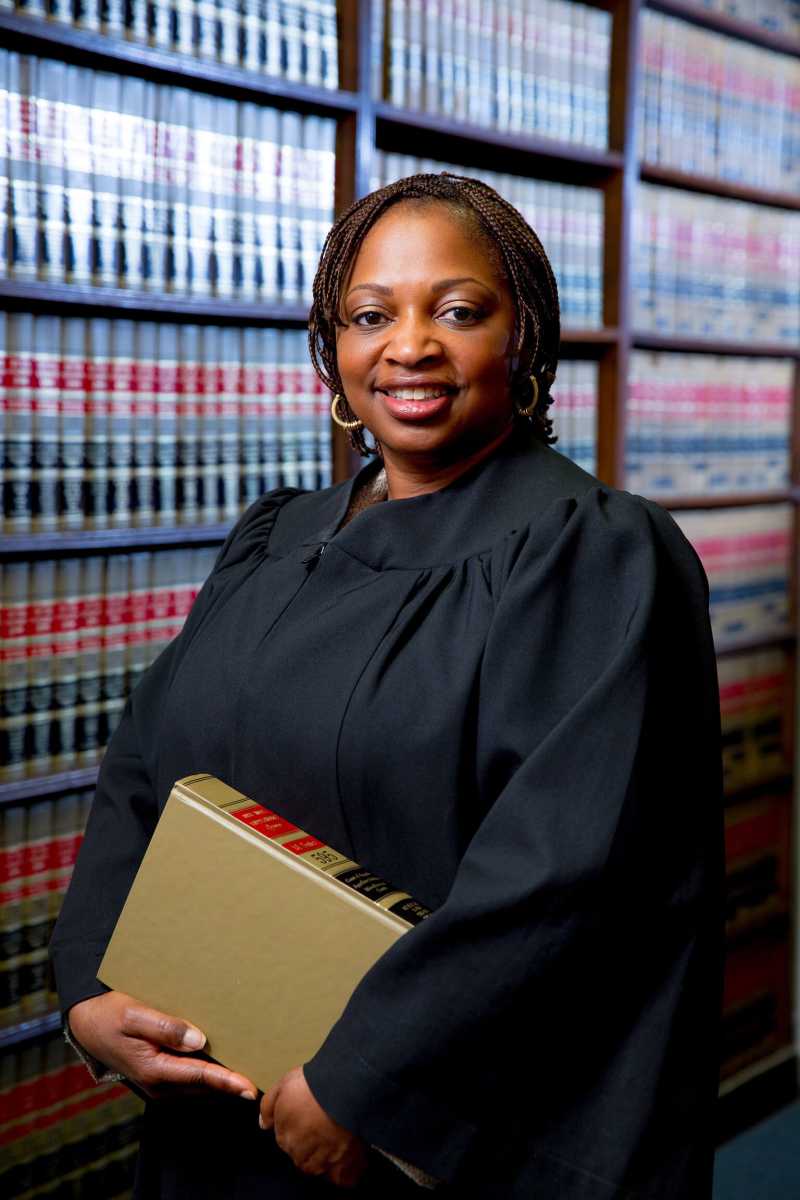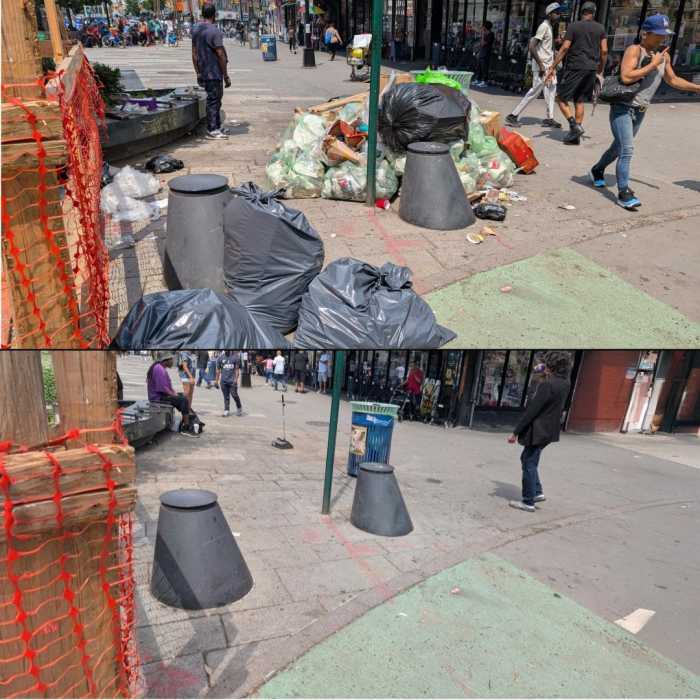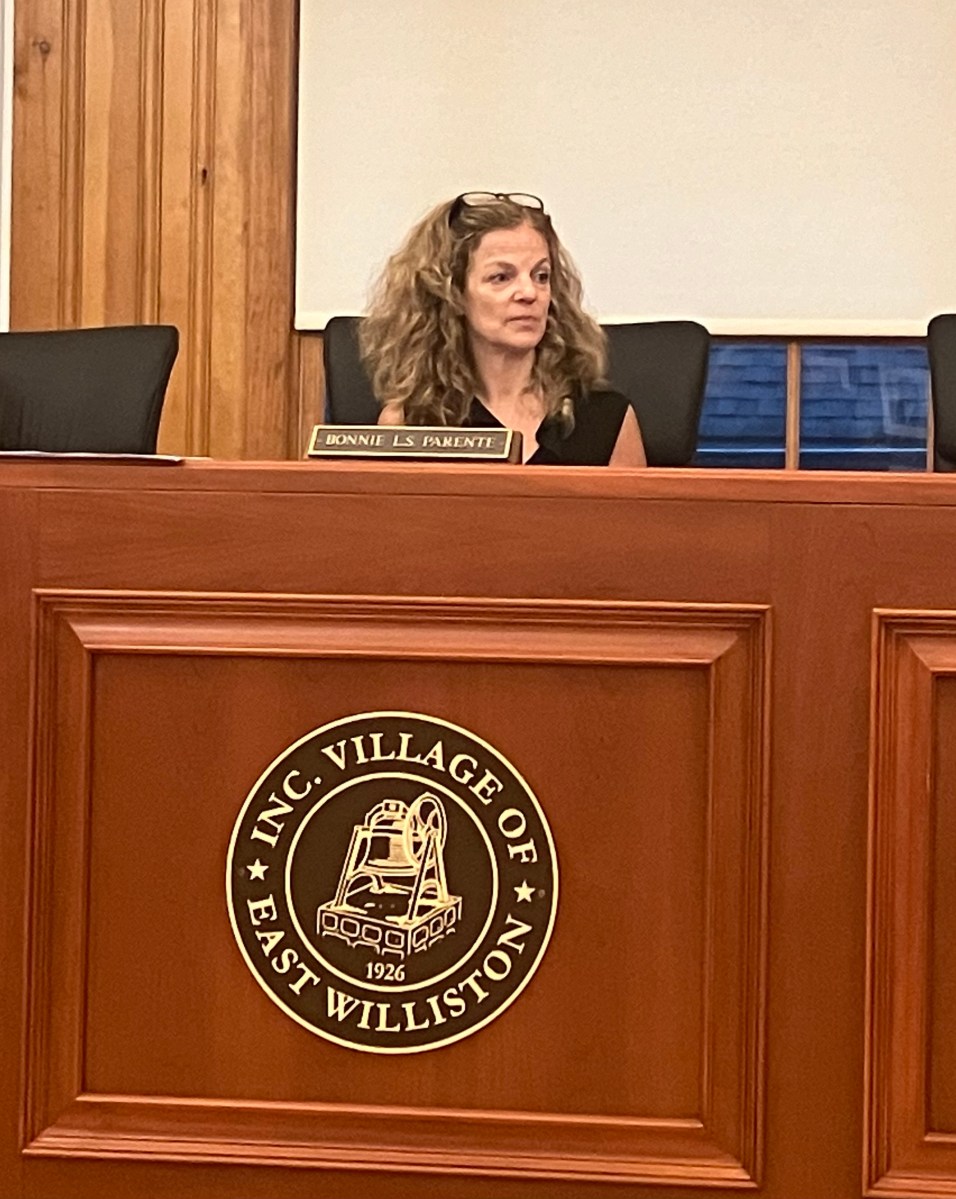In January 2021, Caribbean American Justice Kathy King, the daughter of Montserrat immigrants, was one of four judges temporarily assigned to Supreme Court, New York County due to vacancies resulting from the retirement of several judges and appointments to the Appellate Division, 1st Department.
Justice King, a Bedford-Stuyvesant, Brooklyn resident, told Caribbean Life that it was a virtual assignment due to the pandemic, and meant that she was physically located in Kings County, while hearing oral arguments and appearing virtually on conferences on New York County cases.
In January 2022, Justice King joined the New York County Supreme Court bench and presides in a Medical Malpractice Part.
While Justice King conferences and hears oral arguments on designated matters virtually, she said her trial calendar for the year is anticipated to be “busy, consistent with the court system’s focus on the restoration of in-person proceedings and services.”
“During the pandemic, I really missed the courtroom experience and look forward to the opportunity to resume in person trials safely,” she said. “The delay in trials resulting from the pandemic has had an adverse effect on the ability of parties to seek relief in court and enforce their rights.”
Justice King found that working remotely required some adjustments.
She said physical court appearances were replaced by virtual appearances via Microsoft Teams, a video conferencing program similar to Zoom, where the Court emails a Microsoft Teams invitation to the parties with a designated time to appear.
With virtual proceedings, Justice King said the Court is also more reliant on the New York State Court Electronic Filing (NYSCEF) system that permits the filing of legal papers by electronic means.
Using NYSCEF, she said the Court can provide notice of virtual court appearances, review electronic submission of documents by parties in an action, and upload decisions and orders.
Justice King also said that the virtual operation of the court has been challenging.
She said that, typically, when interim requests for relief or motions are made, 60 to 80 matters are heard on a given day.
In a virtual proceeding, she said about 50 percent of this amount is heard over a period of days.
“In the courtroom, the Court has the assistance of staff, usually two Court attorneys, to hear multiple cases at the same time,” Justice King said. “In a virtual proceeding, however, since matters are heard based on the time designated in the Teams invite, only one matter may be heard at a time.”
But she said since the virtual proceeding is a by-product of the pandemic, the rules governing these proceedings are “a work in progress.”
Justice King said it is important for parties to be observant of appropriate decorum when appearing in a virtual proceeding.
She said attire that reflects the business of the court should be worn.
“Relaxed clothing, such as tee shirts and sweats, should not become the standard because the proceeding is not in person,” she said. “Participants in a virtual proceeding should also select a space that is quiet and free from distractions. Pets should not be heard.
“Office and/or house mates should not interrupt the person appearing in the virtual proceeding,” Justice King added. “Parties should not eat or drink beverages, except for water, while appearing on the screen. Parties should have the same level of respect for the court and the court process during a virtual proceeding.”
Justice King received her undergraduate degree from the City College of the City University of New York (CUNY), and her law degree from the State University of New York at Buffalo.
She was elected to the Civil Court, Kings County in 2003. In 2009, she was appointed to serve as an Acting Supreme Court Justice, where she presided over guardianship cases from 2009-2013.
In 2014, Justice King was elected to Supreme Court, Kings County. She was appointed to the Committee on Fiduciary Appointments by Chief Judge Jonathan Lippmann in 2015.
Throughout her tenure on the bench, Justice King said she has written extensively on “a wide range of legal issues,” including the seminal decision, In the Matter of Jane Doe, An Incapacitated Person, a case of first impression under the Family Health Care Decisions Act.
Her decisions have been published in the New York Official Reports and the New York Law Journal.
Justice King said she began her legal career in the NYS Unified Court System in 1989, where she was a Court Attorney to the late Ralph W. Sparks.
Thereafter, she was assigned to Richmond County Civil Court as Counsel to the Self-Represented.
From 1992-1998, Justice King served as General Counsel, where she supervised litigation and provided legal counsel to the Commissioners of Elections.
As the Chief Compliance Officer for the Board of Elections, she was responsible for enforcing the Voting Rights Act in the City of New York.
Justice King was in private practice for several years, specializing in trusts and estates, real estate and consumer rights.
She returned to public service in 2000, working as deputy clerk to the New York City Board of Elections and, along with the agency’s chief, managed election operations for the largest voting constituency in New York State.
Committed to ensuring diversity and inclusion in the legal profession, Justice King is a lifetime member of the National Association of Women Judges (NAWJ), an organization that serves as the leading voice for women in the judiciary.
She served as NAWJ District 2 director from 2019-2021, and is presently co-chair of NAWJ’s membership committee.
She is a former past president of NAWJ’s NY chapter (2015), and previously served as the organization’s secretary (2016) and treasurer (2017).
Justice King said she also serves as a mentor to aspiring lawyers and rising high school students.
She was a member of the Board of Trustees of Imagine Me Charter Leadership School from 2009-2012, and helped developed best practices in educating the next generation of African-American male leaders.
Justice King currently serves as a co-chair of the Board of Trustees at St. Barnabas High School, an all-girls high school in the Bronx.
She is a member of numerous judicial and bar organizations including Judicial Friends, the Brooklyn Bar Association, Brooklyn Women’s Bar, and NYS Academy of Trial Lawyers.
Justice King and her husband, Edward H. King, a veteran attorney, live in Brooklyn. They have three adult children.























